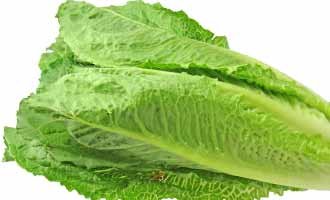Consumers urged to avoid Romaine lettuce from Salinas, California
Federal, state regulators announce alert
PROVIDENCE — The Centers for Disease Control and Prevention (CDC) and the U.S Food and Drug Administration (FDA) are advising people to not eat romaine lettuce harvested from the Salinas, California growing region. The CDC and FDA are investigating a multistate outbreak of E. coli O157:H7 infections linked to romaine lettuce harvested from this growing region.
This advisory pertains to all types of romaine lettuce harvested from Salinas, California, including whole heads of romaine, hearts of romaine, and packages of precut lettuce and salad mixes which contain romaine (including baby romaine, spring mix, and Caesar salad). If romaine lettuce has “Salinas” on the label in any form (whether alone or with the name of another location) do not eat it. If you have romaine lettuce at home that is not labeled with a growing region, don’t eat it, and throw it away. To date, 40 cases and 28 hospitalizations have been associated with this outbreak. There are no known illnesses in Rhode Island, Massachusetts, or Connecticut associated with this outbreak.
Romaine lettuce that was harvested outside of the Salinas, California growing area does not appear to be related to the current outbreak. Hydroponically and greenhouse-grown romaine also do not appear to be related to the current outbreak. There is no recommendation for consumers or retailers to avoid using romaine harvested from sources outside Salinas, California.
What Do Restaurants and Retailers Need To Do?
Retailers, restaurants, and other food service operators should not serve romaine lettuce from the Salinas, California growing area. If the romaine lettuce is not labeled with a harvest growing region and harvest date, do not buy, serve, sell, or eat it. If you are unable to determine the source of your romaine lettuce, the product should be sent back to your supplier or thrown away.
Restaurants and retailers should always practice safe food handling and preparation measures. It is recommended that food handlers wash hands, utensils, and surfaces with hot, soapy water before and after handling food.
Wash and sanitize display cases and refrigerators regularly.
Wash and sanitize cutting boards, surfaces, and utensils used to prepare, serve, or store food.
Wash hands with hot water and soap following the cleaning and sanitation process.
Regular, frequent cleaning and sanitizing of food contact surfaces and utensils used in food preparation may help to minimize the likelihood of cross-contamination.
For general health questions, contact the Health Information Line: 401-222-5960 / RI Relay 711 or visit www.health.ri.gov






